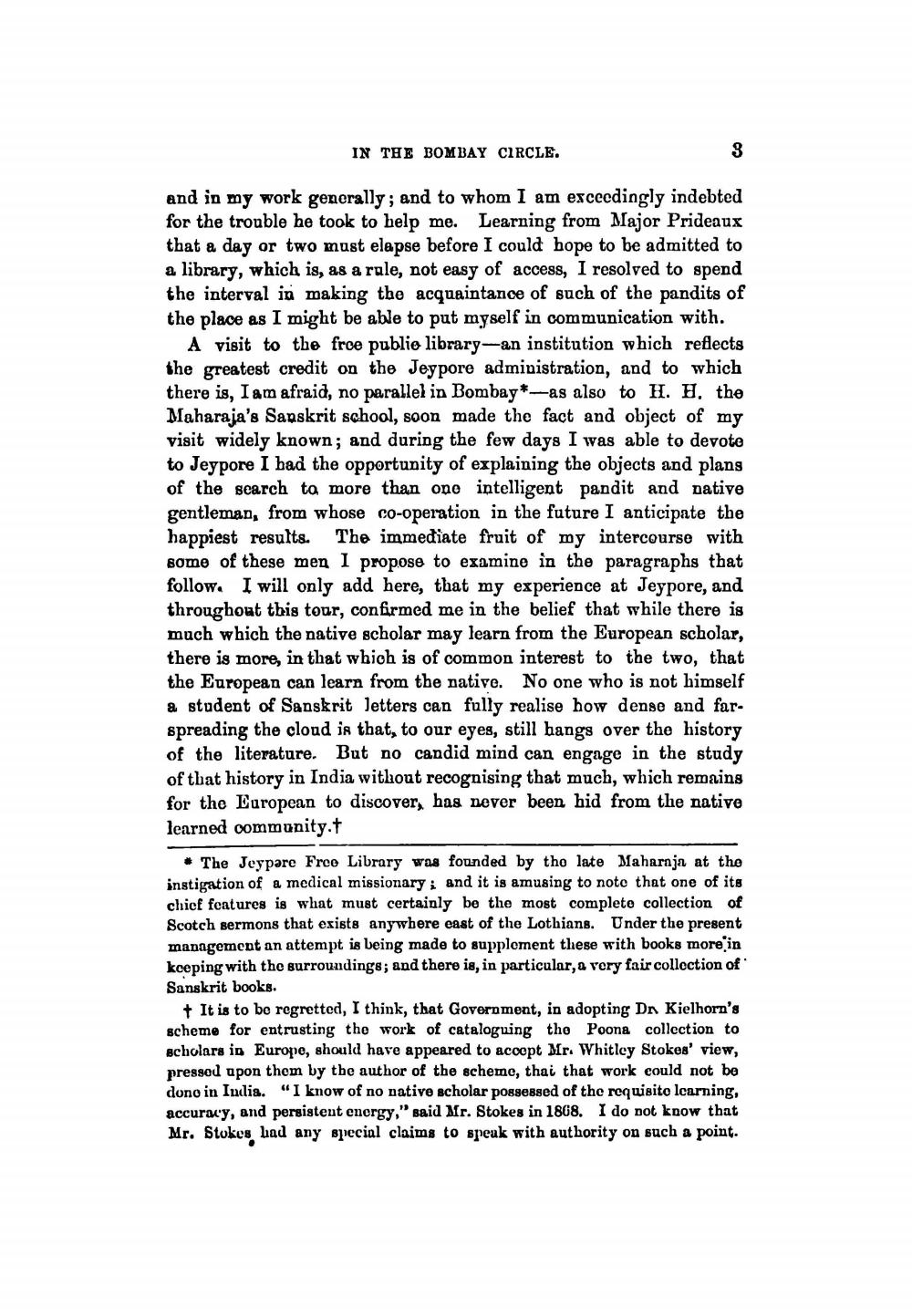________________
IN THE BOMBAY CIRCLE.
and in my work gencrally; and to whom I am exceedingly indebted for the trouble he took to help me. Learning from Major Prideaux that a day or two must elapse before I could hope to be admitted to a library, which is, as a rule, not easy of access, I resolved to spend the interval in making the acquaintance of such of the pandits of the place as I might be able to put myself in communication with.
A visit to the froe publio library-an institution which reflects the greatest credit on the Jeypore administration, and to which there is, I am afraid, no parallel in Bombay*--as also to H. H. the Daharaja's Sanskrit school, soon made the fact and object of my visit widely known; and during the few days I was able to devote to Jeypore I had the opportunity of explaining the objects and plans of the search to more than one intelligent pandit and native gentleman, from whose co-operation in the future I anticipate the happiest results. The immediate fruit of my intercourse with some of these men I propose to examine in the paragraphs that follow. I will only add here, that my experience at Jeypore, and throughout this tour, confirmed me in the belief that while there is much which the native scholar may learn from the European scholar, there is more, in that which is of common interest to the two, that the European can learn from the native. No one who is not himself a student of Sanskrit letters can fully realise how dense and farspreading the cloud is that, to our eyes, still hangs over the history of the literature. But no candid mind can engage in the study of that history in India without recognising that much, which remains for the European to discover, has never been hid from the native learned oommunity.t
• The Jeypəre Free Library was founded by the late Maharaja at the instigation of a medical missionary: and it is amusing to note that one of its chief features is what must certainly be the most completo collection of Scotch sermons that exists anywhere east of the Lothians. Under the present management an attempt is being made to supplement these with books more in koeping with the surroundings; and there is, in particular, a very fair collection of Sanskrit books.
+ It is to be regretted, I think, that Government, in adopting Dn Kielhorn's scheme for entrusting the work of cataloguing the Poona collection to scholars in Europe, should have appeared to accept Mr Whitley Stokes' view, pressod upon them by the author of the scheme, thai that work could not be dono in India. "I know of no native scholar possessed of the requisito lcarning, accura'y, and persistent energy," said Mr. Stokes in 1868. I do not know that Mr. Stokes, had any special claims to speak with authority on such a point.




